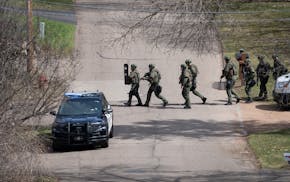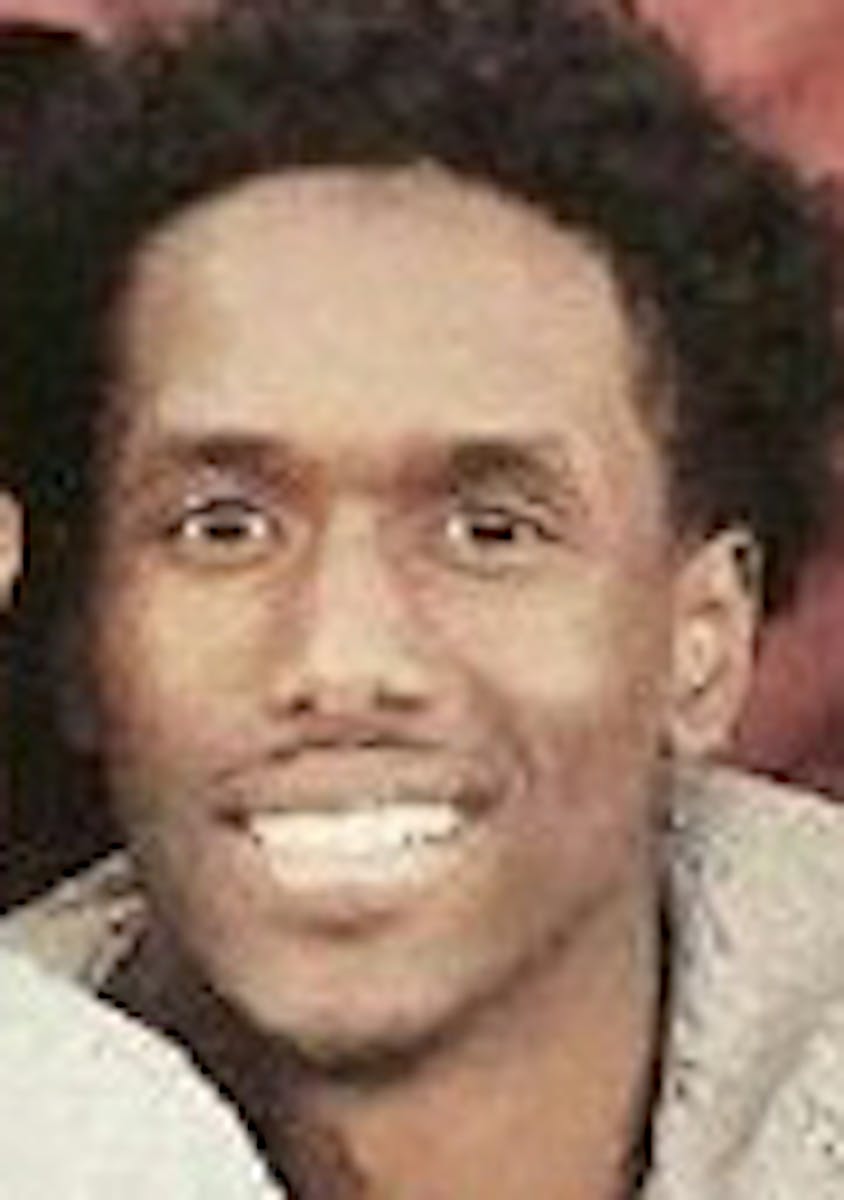Accused ISIL recruit Adnan Farah pleaded guilty Thursday morning in an abrupt reversal, after prosecutors extended a late plea deal because of evidence that someone on a co-defendant's legal team had interfered with his defense strategy.
Farah, 20, admitted to conspiring to provide material support to the Islamic State of Iraq and the Levant (ISIL) during a dramatic hearing that was called on short notice and then interrupted for 45 minutes when the young man's mother collapsed in the Minneapolis courtroom.
The plea offer — less than a month before Farah and four others were scheduled to stand trial — came late Wednesday, prosecutors say, because of evidence of "impermissible interference" by a member of a co-defendant's defense team. That interference, they said, prevented Farah from having a "full and fair opportunity" to review the case against him when he was last offered a deal in September.
The plea also marked a rare example in which federal charges of conspiracy to murder abroad, added against Farah and four others last October, have been dismissed.
In court Thursday, an emotional Farah told U.S. District Judge Michael Davis he would have accepted a plea deal in September.
Neither the U.S. attorney's office nor Farah's attorney, Kenneth Udoibok, would confirm who allegedly interfered with Farah. But in a court filing last month, a lawyer for another defendant in the case asserted that a local imam, Hassan Mohamud, tried to dissuade his client from pleading guilty last year on the eve of his hearing.
Attorney Jon Hopeman said the imam and Farah's father appeared outside the home of his client and said that all the defendants in the case should stick together and go to trial.
Reached by phone Thursday, Mohamud said he could not comment on the case because he was no longer participating on the defense team for Mohamed Farah, Adnan's brother and one of the other defendants in the case. Mohamud said he has helped with "morale and financial support. As a Muslim imam, whenever the family has needed help, we support them."
Omar Jamal, a community activist and head of the Somali Human Rights Commission, said the alleged interference was another example of outside groups or religious leaders putting their interests before those of the defendants and their families.
"These kids are as much confused now as they were when they were getting indoctrinated," Jamal said.
'I'm taking responsibility'
In court Thursday, Adnan Farah admitted to making plans to travel to Syria to fight with ISIL beginning in spring 2014. His first attempt to leave, in May 2014, with fugitive Abdi Nur and Abdullahi Yusuf, who has since pleaded guilty, was thwarted when his parents confiscated his passport, he said. Farah said he continued to plot with others in the case into 2015. They kept in touch with Nur, who was by then in Syria, and used paintball sessions as combat training.
"I'm taking responsibility for my actions," Farah told Judge Davis. "That's how you go on with your life, is to accept responsibility."
Davis asked if anyone forced Farah to plead not guilty and go to trial.
"Nobody was forcing me, I would say. Just my family strongly believing I would prove my case," Farah said. "[The guilty plea] is the hardest decision I ever had to make."
Udoibok, who joined the case in September after Farah fired his previously appointed attorney, later said that he had to convince Farah to accept the deal and convey to his family that it was the right decision.
"I don't represent the parents. The parents are not lawyers," Udoibok said. "I know this: They love their child. Sometimes decisions made without the dead, cold evidence will not be rational."
After accepting Farah's plea, Davis ordered him to undergo a risk assessment by German de-radicalization expert Daniel Koehler, who is in Minnesota evaluating four others who have pleaded guilty in connection with the federal probe.
Four additional defendants, who have not pleaded guilty — Mohamed Farah, Hamza Ahmed, Abdirahman Daud and Guled Omar — are still scheduled for a May 9 trial on charges including conspiring to murder abroad and providing support to ISIL.
Sadik Warfa, a community leader who has served as a spokesman for families of some defendants, said Thursday that Farah's mother, Ayan Farah, was recovering after her courtroom ordeal.
Thursday's hearing also examined the differing appeal of Al-Shabab, a Somali terror group, and ISIL, with Adnan Farah saying the latter proved more attractive because it engaged recruits in a "battle of hearts and minds."
Udoibok later said Farah watched "hundreds" of ISIL propaganda videos at a time in which he sympathized with Syrians suffering under Bashar Assad. "He's watching these videos and before you know it he is in that world," Udoibok said. "But, look, he never left the country. My client would not know what to do in Syria or Somalia."
Stephen Montemayor • 612-673-1755
Twitter: @smontemayor
![St. Louis County Board approved a plan to distribute $24 million in CARES funding, including $6 million to be distributed to small businesses. ] ALEX](https://arc.stimg.co/startribunemedia/ED62G7Y2RWISNRUZQRT3ZTJVHU.jpg?h=91&w=145&fit=crop&bg=999&crop=faces)
Duluth man sentenced to 40 years for role in drive-by shooting that killed 19-year-old

Man killed in Minnetonka by law enforcement started gun battle with deputies, BCA says
Woman charged after police recover 124 cats from Crystal home
Neal: Future can't come fast enough for Wild

